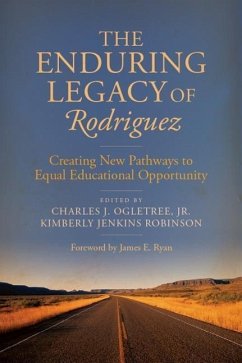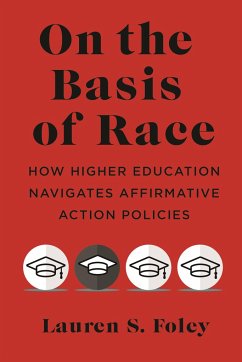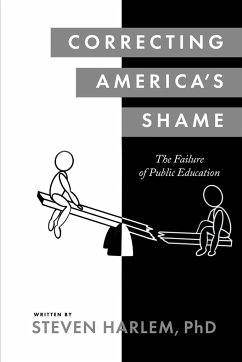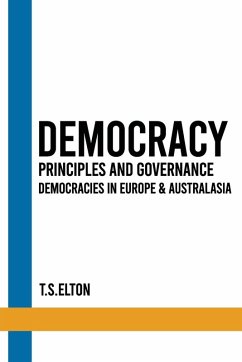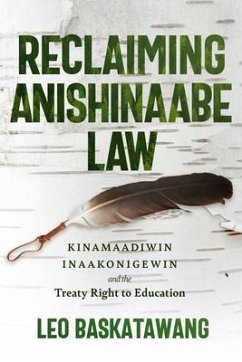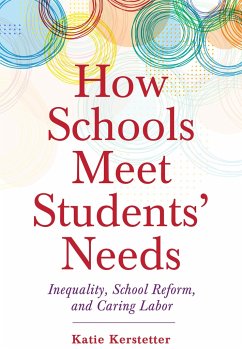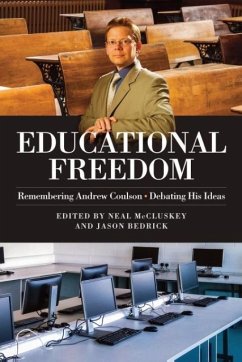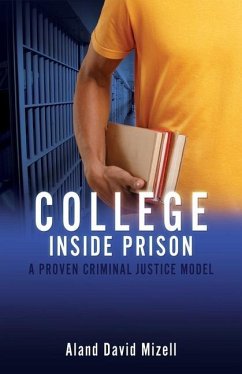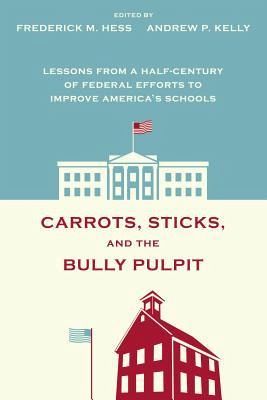
Carrots, Sticks, and the Bully Pulpit
Lessons from a Half-Century of Federal Efforts to Improve America's Schools
Herausgeber: Hess, Frederick M; Kelly, Andrew P
Versandkostenfrei!
Versandfertig in über 4 Wochen
32,99 €
inkl. MwSt.

PAYBACK Punkte
16 °P sammeln!
This timely book brings together a remarkable group of authors who examine the federal role in education policy and reform during the past fifty years. As Frederick M. Hess and Andrew P. Kelly note in their introduction, the book represents a determined effort to move beyond familiar and predictable debates and instead to focus on a number of questions that deserve careful and sustained attention: "What have we learned from the last half-century of federal involvement, especially the last decade or two of significant federal activity? What have we learned about which goals Uncle Sam is well-su...
This timely book brings together a remarkable group of authors who examine the federal role in education policy and reform during the past fifty years. As Frederick M. Hess and Andrew P. Kelly note in their introduction, the book represents a determined effort to move beyond familiar and predictable debates and instead to focus on a number of questions that deserve careful and sustained attention: "What have we learned from the last half-century of federal involvement, especially the last decade or two of significant federal activity? What have we learned about which goals Uncle Sam is well-suited to pursue? What have we learned about how federal efforts play out and about the limits of what federal activity can effectively accomplish?" These questions are of heightened importance at a time when the federal role in education has expanded so dramatically--and when federal education policy is being so vigorously debated. This book--with a diverse and dynamic lineup of leading figures in education research, policy, politics, and innovation--is an indispensable contribution to our current reconsideration of education policy. "This thoughtful volume avoids ideological posturing and instead asks important questions about what the federal government can and cannot do well in supporting education. The cast of contributors is top-notch and with enough differences in focus and perspective to make for a stimulating collection that you'll want to read in full." -- Jeffrey R. Henig, professor of political science and education, Teachers College, Columbia University "With this book, Rick Hess and Andrew Kelly have brought together a diverse group of researchers and policy analysts on a topic that is critical, improving K-12 education. Carrots, Sticks, and the Bully Pulpit will be a crucial resource for lawmakers, policy makers, and anyone interested in improving the quality of education in America." -- Jeb Bush, chairman of the Foundation for Excellence in Education and former governor of Florida "A must-read for every education policy maker in the field, especially every state education leader who is directly affected by federal education policies and actions. As we chart an important course to follow on No Child Left Behind, it is imperative that we recognize the past--since 'what's past is prologue.'" -- Paul G. Pastorek, chief counsel, EADS North America, former superintendent of education, Louisiana "Carrots, Sticks, and the Bully Pulpit is a must-read for any lawmaker who wants to understand the history of federal education policy and its implications for our schools, as well as for any teacher who wonders why the classroom they entered with optimism and hope has become so mired in paperwork and bureaucracy." -- Robert Scott, commissioner of education, Texas Frederick M. Hess is resident scholar and director of education policy studies at the American Enterprise Institute (AEI). Andrew P. Kelly is a research fellow in education policy studies at AEI.



